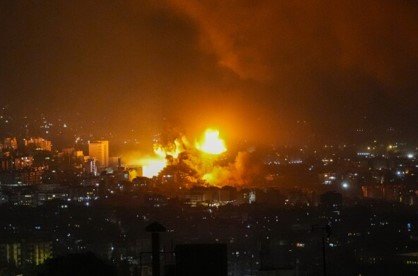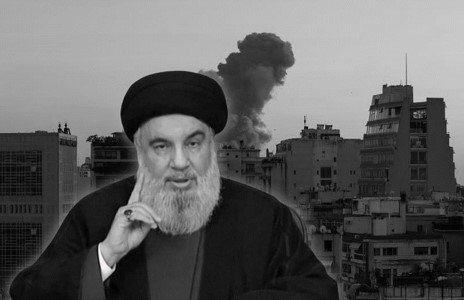Hezbollah has confirmed the killing of its leader Hassan Nasrallah following a brutal airstrike by Israel on the southern suburbs of Beirut on Friday. The group said Nasrallah was killed after a “treacherous Zionist airstrike on the southern suburbs.”
Nasrallah’s death is a major blow to Hezbollah, which has been hit by a wave of unprecedented attacks in recent weeks, including pager and walkie-talkie explosions targeting its members. Nasrallah, who led Hezbollah for over three decades, stood as one of Israel’s most formidable opponents. His leadership has been critical in Hezbollah’s defense of Lebanon and its support for Palestinian resistance.
Israel launched the massive airstrike on what it said was Hezbollah’s “central headquarters” in southern Beirut on Friday. Israel’s army chief Herzi Halevi stated that the attack was carried out “after a long period of preparation” and “at the right time, in a very sharp manner.”
Halevi also warned that this was not the end of Israel’s “toolbox,” and there are “further tools going forward.” The Israeli Defense Forces (IDF) continued to strike Beirut buildings later Friday, alleging they were used by Hezbollah as command centers and weapons production and storage sites.


According to Lebanon’s health ministry, at least six people were killed and dozens injured in the bombardment, adding the casualty count was “not final.” The strikes displaced families from their homes, leaving many to seek refuge on the streets and in their cars.
Hezbollah Promises ‘Resistance’
In response to the assassination of Nasrallah, Hezbollah released a statement reaffirming its unwavering commitment to resisting Israeli occupation and aggression. The movement vowed to continue its fight in defense of Lebanon, Gaza, and the Palestinian cause.
“The leadership of Hezbollah pledges to the most supreme, sacred, and dearest martyr in our journey, filled with sacrifices and martyrs, that it will continue its fight to confront the enemy, in support of Gaza and Palestine, and in defense of Lebanon and its steadfast and honorable people,” the statement said.
“His Eminence Sayyed Hassan Nasrallah, Secretary-General of Hezbollah, has joined his great and eternal martyred companions, whom he led for nearly thirty years, guiding them from victory to victory,” it continued.

Who was Nasrallah?
The political and spiritual leader who guided Hezbollah to a position of prominence in Lebanon, Nasrallah, 64, led the Iran-backed group for more than 32 years. The Shia leader was praised by his supporters for opposing Israel and challenging the United States. Nasrallah was born into a Shia family in the suburbs of Beirut in August 1960. His childhood was shadowed by the civil conflict in Lebanon. In 1982, Israel invaded Lebanon in response to assaults by the Palestine Liberation Organization, prompting Nasrallah to mobilize a contingent of warriors to oppose the occupation, which subsequently transformed into Hezbollah

Nasrallah’s regional influence was evident throughout nearly a year of warfare initiated by the Gaza war, as Hezbollah engaged by launching attacks on Israel from southern Lebanon in solidarity with its Palestinian allies Hamas.
What Lies Ahead for Hezbollah?
While Nasrallah’s targeting is unlikely to disrupt the operational continuity of the movement it is “obviously a massive, massive demoralization amongst its ranks and supporters and absolute terror which will temporarily paralyze ordinary people” within the movement, said Amal Saad, a Hezbollah expert and lecturer in politics and international relations at Cardiff University in Wales to CNN.
“That doesn’t mean the organization is paralyzed,” she added. “Hezbollah is an organization that was built to absorb these types of shocks… it’s built to be resilient and outlast individual leaders.”
With Nasrallah’s assassination, Hezbollah will now need to select a new leader, who in turn will need to decide what direction to take Hezbollah in. Whatever the group decides will affect more than Hezbollah: ripples will be felt across Lebanon and the wider region.


